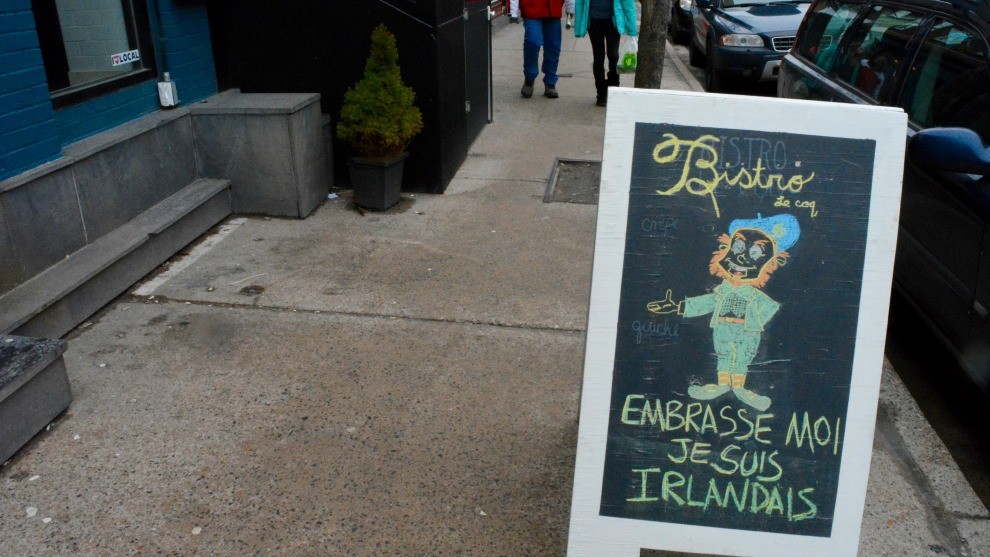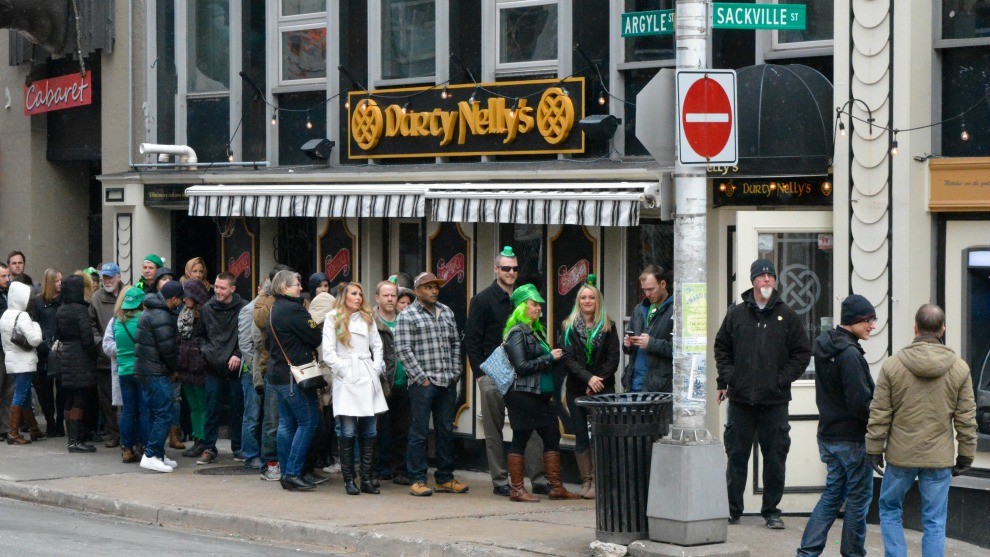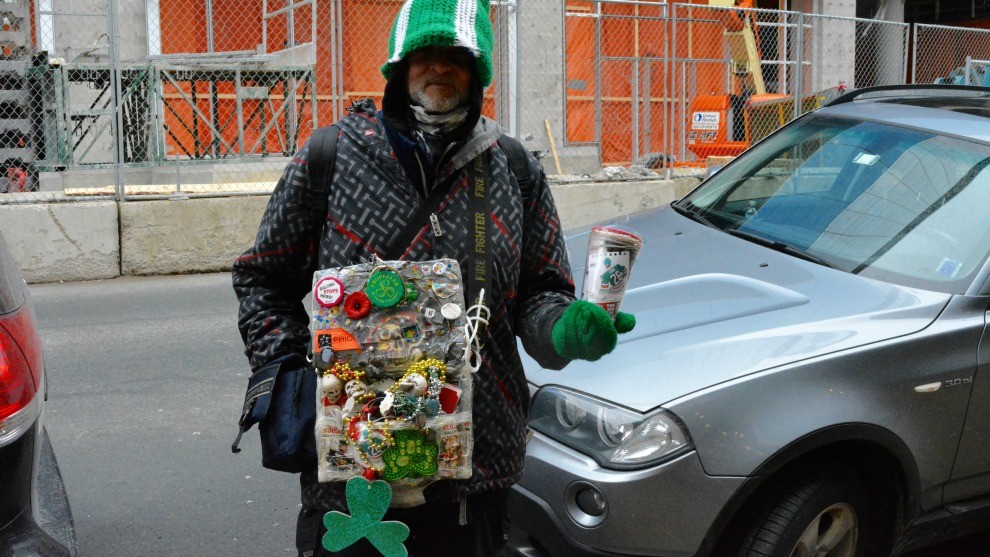CULTURE
St. Patrick’s Day: North American vs. ‘traditional’
Nova Scotia's Irish association weighs in on what the holiday is, isn't

caption
People waiting outside Durty Nelly's for holiday celebrations.
caption
Local restaurants spreading the Irish spirit.Members of An Cumann, the Irish association of Nova Scotia, say St. Patrick’s Day has different meanings in Ireland and in North America.
Elizabeth MacDonald, president of the association, says the way that North Americans celebrate the holiday is untraditional and a mockery of her culture and traditions.
“It’s hard to know what St. Patrick’s Day means for every Irish person, but I think it’s easy to know what it doesn’t mean,” she said.
“What St. Patrick’s Day isn’t, is this day to start drinking at six o’clock in the morning and not stop until you can’t consume any more. That’s not what St. Patrick’s Day means to the Irish, and in fact I personally find it offensive that they attempt to portray us that way.”

caption
People waiting outside Durty Nelly’s for holiday celebrations.The population of Irish descendants in Nova Scotia has dropped from 50 per cent in 1860 to just over 21 per cent in 2006, according to Statistics Canada.
“The stereotype of the drunken Irishman comes from a time when the Irish were not particularly welcome as immigrants or into our communities, mostly because many were Catholic in a time where anti-Catholicism was strong,” MacDonald said.
“The stereotype of the drunken, brawling Irishman grew and was promoted by those who really had no use for the Irish, and it’s hung on by the way in which people treat St. Patrick’s Day.”
David Moriarity, former president of the association, says An Cumann was created as a way of teaching and celebrating the Irish traditions that are missing in North America.
“For each individual, the meaning of St. Patrick’s Day is different. For me, it’s something as simple as going out and enjoying some Irish music with people who, like myself, enjoy celebrating the culture. It’s a day that everyone can get together and talk about Irish traditions,” he said.
The holiday celebrates St. Patrick, a priest and a bishop who led many of the Irish people to Christianity. On March 17, AD 460, St. Patrick died, leading to a day of mourning for the people of Ireland. From that a celebration was created, according to discovery.com.

caption
Man on the street decked out for St Patrick’s Day.“I certainly don’t think it has anything to do with religion anymore, that aspect of it is gone, at least in Canada. There are some people that are very serious about the religious aspects of the holiday, and they have a right to feel that way as well,” Moriarity said.
“St Patrick’s Day is obviously a celebration, but for the Irish it’s also a time where we’re reminded where we come from, and how far we’ve come.”

